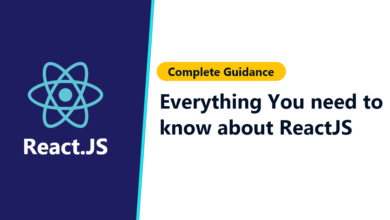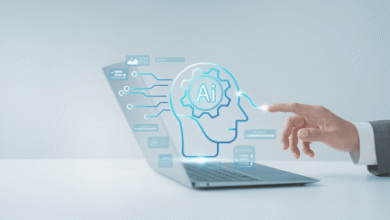5 Future-Proof Tech Careers You Should Consider in 2025
Future-proof tech careers for 2025 Discover top AI cybersecurity cloud data science & blockchain jobs with high growth & salaries.

Future-proof tech careers are becoming increasingly vital as technology continues to reshape industries at a rapid pace. By 2025, professionals who adapt to emerging trends will have a competitive edge in the job market. Whether you’re just starting your career or looking to pivot into a more resilient field, choosing the right path can ensure long-term stability and growth in the ever-evolving tech landscape.
In this article, we explore five of the most future-proof tech careers that are projected to thrive in 2025 and beyond. From artificial intelligence to cybersecurity, these roles not only offer high earning potential but also strong job security. We’ll break down the skills required, salary expectations, and industry demand for each career, helping you make an informed decision about your next career move in the fast-changing digital world.
5 Future-Proof Tech Careers You Should Consider in 2025
Artificial Intelligence and Machine Learning Engineer
Artificial Intelligence (AI) and Machine Learning (ML) are revolutionizing industries, from healthcare to finance. AI Engineers design algorithms that enable machines to learn from data, while ML Engineers build predictive models that improve decision-making. Companies like Google, Tesla, and Amazon heavily invest in AI, making this one of the most lucrative tech careers in 2025. The rise of generative AI tools like ChatGPT and Midjourney further highlights the demand for skilled Future-Proof Tech. Businesses seek AI specialists to automate processes, enhance customer experiences, and drive innovation.
Cybersecurity Analyst
Critical Role in Modern Business Operations
Cybersecurity analysts serve as digital guardians in an era where data breaches cost companies an average of $4.45 million per incident (IBM 2023). These professionals don’t just react to threats they implement proactive defense strategies including Continuous network monitoring using SIEM (Security Information and Event Management) tools. Vulnerability assessments through penetration Future-Proof Tech. Development of comprehensive security policies.
Pathway to Career Advancement
The cybersecurity field offers clear progression opportunities Entry-level: Security Analyst/Incident Responder ($60k-$90k). Mid-level: Security Engineer/Consultant ($90k-$130k). Senior-level: Security Architect/CISO ($130k-$250k+). Specializations include Cloud security (AWS/Azure security certifications). Ethical hacking (OSCP certification). Governance/Risk/Compliance (CISM).
Future-Proof Industry Growth
The cybersecurity job market shows unprecedented growth 3.5 million unfilled positions globally (ISC² 2023). 35% projected job growth through 2031 (BLS). Emerging Future-Proof Tech. Critical infrastructure protection. Privacy engineering for GDPR/CCPA compliance. The field offers geographic flexibility, with opportunities in government (NSA, CIA), tech firms, financial institutions, and cybersecurity consultancies.
Cloud Computing Architect
Core Responsibilities and Market Demand
Cloud Architects play a pivotal role in digital transformation by designing and managing hybrid/multi-cloud infrastructures that optimize performance, cost, and security. They implement CI/CD pipelines and infrastructure-as-code solutions like Terraform and CloudFormation to automate deployments, while strategically optimizing cloud spend through right-sizing and reserved Future-Proof Tech. Additionally, they ensure compliance with critical standards such as ISO 27001 and HIPAA, safeguarding sensitive data across industries. The demand for Cloud Architects continues to surge, with 94% of enterprises now using cloud services (Flexera 2023) and the global cloud market projected to reach $591.8 billion by 2025 (Gartner).
Career Pathways and Emerging Trends
Cloud architecture offers diverse specialization paths and lucrative career progression, with professionals typically starting as Junior Cloud Engineers ($85k-$110k) before advancing to Solutions Architecture ($120k-$160k) and Principal Cloud Architects ($160k-$220k+). Key certification options include vendor-specific credentials like AWS/Azure/GCP architect Future-Proof Tech, Kubernetes (CKA/CKAD) for container orchestration, and cloud security specialties (CCSP). The field demands future-ready skills such as serverless architecture design, multi-cloud management tools, and cloud-native AI/ML deployment, with emerging opportunities in quantum computing integration.
Data Scientist
Core Competencies & Technical Toolkit
Data Scientists require a multifaceted technical skillset that blends programming proficiency with advanced analytical capabilities. Core competencies include Python (with Pandas and NumPy for data manipulation), R, and SQL for efficient data wrangling, along with expertise in machine learning techniques ranging from supervised/unsupervised algorithms to deep learning Future-Proof Tech like TensorFlow and Porch. Effective data visualization skills using tools such as Tableau, Power BI, and Matplotlib/Seaborn are essential for communicating insights, while cloud platform familiarity (AWS SageMaker, Google Big Query, Databricks) enables scalable data processing.
Industry Applications & Impact
Data science has become the backbone of strategic decision-making across industries, transforming raw data into actionable intelligence. In finance, it powers fraud detection systems, algorithmic trading platforms, and precision credit scoring models. Healthcare organizations leverage predictive diagnostics to identify at-risk patients, accelerate drug discovery through bioinformatics, and optimize hospital resource allocation. Marketing teams rely on customer segmentation algorithms, Future-Proof Tech prediction models, and dynamic pricing optimization to enhance campaign performance. The tech sector implements sophisticated recommendation engines (like those used by Netflix and Amazon).
Career Growth & Future Trends
The data science field offers a clear and lucrative career progression, beginning with entry-level Data Analyst roles ($65k-$90k) focused on data cleaning and visualization, advancing to mid-career Data Scientist positions ($100k-$170k) requiring machine learning expertise, and culminating in senior Lead DS/ML Engineer roles ($170k-$250k+) overseeing strategic AI implementations. The field is rapidly evolving with high-value specializations like Mops for production-grade model Future-Proof Tech, Edge AI for real-time IoT analytics, Responsible AI ensuring ethical algorithm development.
Blockchain Developer
Expanding Real-World Applications
Blockchain technology is revolutionizing multiple industries beyond crypto. Supply Chain Walmart uses blockchain to track food sources, reducing contamination investigation time from 7 days to 2.2 seconds. Healthcare Patient records management with tamper-proof history (MedRec project). Finance Cross-border payments (Ripple) and automated compliance (smart contracts). Emerging Uses Digital identity verification, voting systems, and NFT-based intellectual property. Developers now work on enterprise blockchain solutions (Hyperledger Fabric) and government digital currency projects (CBDCs).
Specialized Skill Development Path
The profession requires a unique technical stack Core Languages: Solidity (Ethereum), Rust (Solana), Viper. Development Environments Truffle Suite, Hardhat, Remix IDE. Key Concepts: Consensus algorithms, token standards (ERC-20/721), zk-SNARKs. Essential Tools: Web3.js, Ethers.js, IPFS for decentralized storage. Top certifications include Ethereum Developer Certification (Blockchain Council). Hyperledger Certified Practitioner (Linux Foundation). Chain-link Certification for oracle Future-Proof Tech.
Future-Proof Career Trajectory
The blockchain job market shows exceptional potential 115% year-over-year growth in developer jobs (LinkedIn 2023). Average salaries reaching $154k in the US (Hired.com). Emerging specializations Layer 2 scaling solutions (Polygon, Arbitrum). Zero-knowledge proof development. DAO (Decentralized Autonomous Organization) architecture. Interoperability protocols (Cosmos, Polka dot).
Read More: How to Choose the Best Web Hosting for a Small Business Website
Conclusion
Future-proof tech careers offer unparalleled opportunities for professionals looking to thrive in the digital age. As we approach 2025, fields like AI, cybersecurity, and cloud computing will continue to dominate the job market, providing stability and high earning potential. By choosing one of these in-demand career paths, you position yourself for long-term success in an ever-evolving technological landscape.
The key to securing a future-proof tech career lies in continuous learning and skill development. Whether you’re just starting out or transitioning into tech, investing in the right certifications and hands-on experience will keep you competitive. Embrace these emerging opportunities now, and you’ll be well-prepared to excel in the tech-driven economy of tomorrow.
FAQs
Which tech career has the highest salary in 2025?
AI and ML Engineers, along with Blockchain Developers, are among the highest-paid professionals in 2025.
Do I need a degree to start a career in cybersecurity?
While a degree helps, certifications like CISSP and CEH can qualify you for cybersecurity roles.
What programming languages should I learn for data science?
Python, R, and SQL are essential for data science and machine learning applications.
Is cloud computing a good career for beginners?
Yes, with certifications like AWS or Azure, beginners can quickly enter the cloud computing field.
How long does it take to become a Blockchain Developer?
With focused learning, you can become proficient in blockchain development within 6-12 months.











